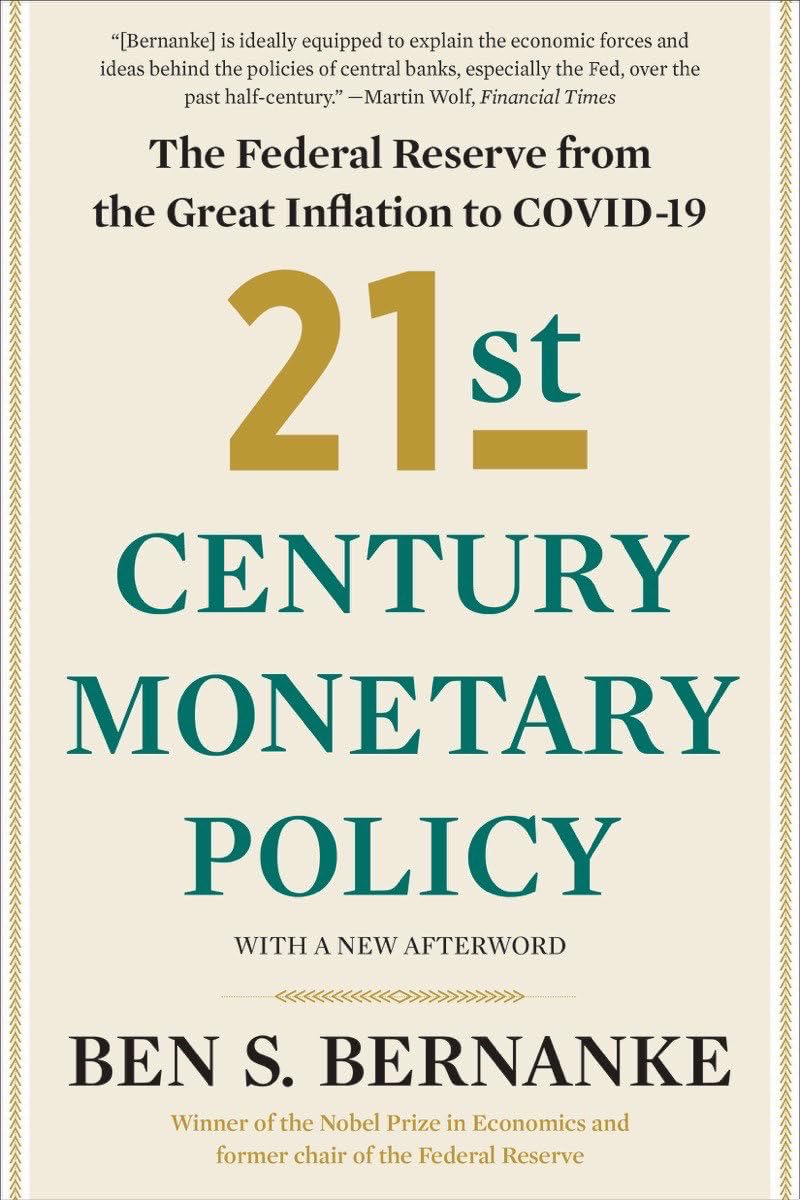21st Century Monetary Policy: The Federal Reserve from the Great Inflation to COVID-19
20.00 JOD
Please allow 2 – 5 weeks for delivery of this item
Add to Gift RegistryDescription
21st Century Monetary Policy takes readers inside the Federal Reserve, explaining what it does and why.
In response to the COVID-19 pandemic, the Federal Reserve deployed an extraordinary range of policy tools that helped prevent the collapse of the financial system and the U.S. economy. Chair Jerome Powell and his colleagues lent directly to U.S. businesses, purchased trillions of dollars of government securities, pumped dollars into the international financial system, and crafted a new framework for monetary policy that emphasized job creation.
These strategies would have astonished Powell’s late-20th-century predecessors, from William McChesney Martin to Alan Greenspan, and the advent of these tools raises new questions about the future landscape of economic policy.
In 21st Century Monetary Policy, Ben S. Bernanke―former chair of the Federal Reserve and one of the world’s leading economists―explains the Fed’s evolution and speculates on its future. Taking a fresh look at the bank’s policymaking over the past seventy years, including his own time as chair, Bernanke shows how changes in the economy have driven the Fed’s innovations. He also lays out new challenges confronting the Fed, including the return of inflation, cryptocurrencies, increased risks of financial instability, and threats to its independence.
Beyond explaining the central bank’s new policymaking tools, Bernanke also captures the drama of moments when so much hung on the Fed’s decisions, as well as the personalities and philosophies of those who led the institution.
Additional information
| Weight | 0.39 kg |
|---|---|
| Dimensions | 2.29 × 14.12 × 20.95 cm |
| By | |
| Format | |
| Language | |
| Pages | 528 |
| Publisher | |
| Year Published | 26-5-2023 |
| Imprint | |
| Publication City/Country | USA |
| ISBN 10 | 1324064870 |
| About The Author | Ben S. Bernanke is a Distinguished Fellow in Residence with the Economic Studies Program at the Brookings Institution. From February 2006 through January 2014, he was Chairman of the Board of Governors of the Federal Reserve System. Dr. Bernanke also served as Chairman of the Federal Open Market Committee, the System's principal monetary policymaking body. Before his appointment as Chairman, Dr. Bernanke was Chairman of the President's Council of Economic Advisers, from June 2005 to January 2006. He had already served the Federal Reserve System in several roles. He was a member of the Board of Governors of the Federal Reserve System from 2002 to 2005; a visiting scholar at the Federal Reserve Banks of Philadelphia (1987-89), Boston (1989-90), and New York (1990-91, 1994-96); and a member of the Academic Advisory Panel at the Federal Reserve Bank of New York (1990-2002). From 1994 to 1996, Dr. Bernanke was the Class of 1926 Professor of Economics and Public Affairs at Princeton University. He was the Howard Harrison and Gabrielle Snyder Beck Professor of Economics and Public Affairs and Chair of the Economics Department at the university from 1996 to 2002. Dr. Bernanke had been a Professor of Economics and Public Affairs at Princeton since 1985. Before arriving at Princeton, Dr. Bernanke was an Associate Professor of Economics (1983-85) and an Assistant Professor of Economics (1979-83) at the Graduate School of Business at Stanford University. His teaching career also included serving as a Visiting Professor of Economics at New York University (1993) and at the Massachusetts Institute of Technology (1989-90). Dr. Bernanke has published many articles on a wide variety of economic issues, including monetary policy and macroeconomics, and he is the author of several scholarly books and two textbooks. He has held a Guggenheim Fellowship and a Sloan Fellowship, and he is a Fellow of the Econometric Society and of the American Academy of Arts and Sciences. Dr. Bernanke served as the Director of the Monetary Economics Program of the National Bureau of Economic Research (NBER) and as a member of the NBER's Business Cycle Dating Committee. In July 2001, he was appointed Editor of the American Economic Review. Dr. Bernanke's work with civic and professional groups includes having served two terms as a member of the Montgomery Township (N.J.) Board of Education. Dr. Bernanke was born in December 1953 in Augusta, Georgia, and grew up in Dillon, South Carolina. He received a B.A. in economics in 1975 from Harvard University (summa cum laude) and a Ph.D. in economics in 1979 from the Massachusetts Institute of Technology. Dr. Bernanke is married and has two children. |
| Review Quote | "This exercise of historical assessment from a central participant is one that more policymakers should probably try. It allows readers to make judgments along with Bernanke and think about what lessons today’s policymakers―who are once again battling inflation―might take." ". . . [A] uniquely practical book as the public tries to better understand the powers of the Fed and Congress to juice or slow the economy amid a supply-chain crunch and sky-high demand." "Suffused with high-stakes drama and clear thinking, this is one of the best accounts yet of the Fed’s tumultuous recent past." "A clear explication of how money flows from the nation’s central banking system into the larger economy." "[Bernanke] is ideally equipped to explain the economic forces and ideas behind the policies of central banks, especially the Fed, over the past half-century. The book is characteristically well argued." "Bernanke is the most influential thinker and practitioner on central banking of our era. His book, 21st Century Monetary Policy, offers a lucid account of the evolution of central banking and the US central bank from the ‘great inflation’ of the late 1960s, 1970s and early 1980s to today and into the future." |





